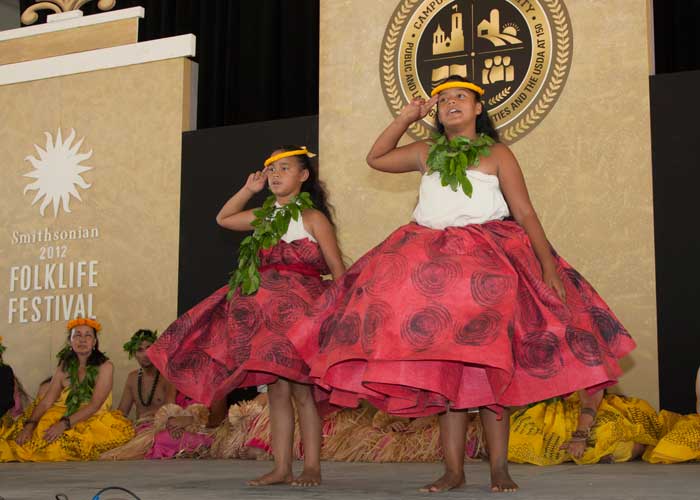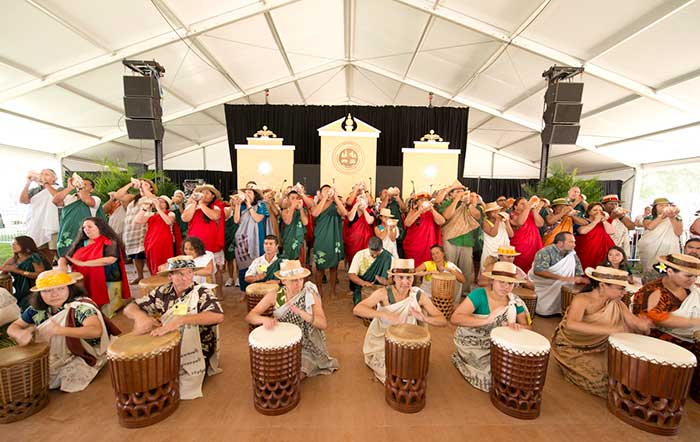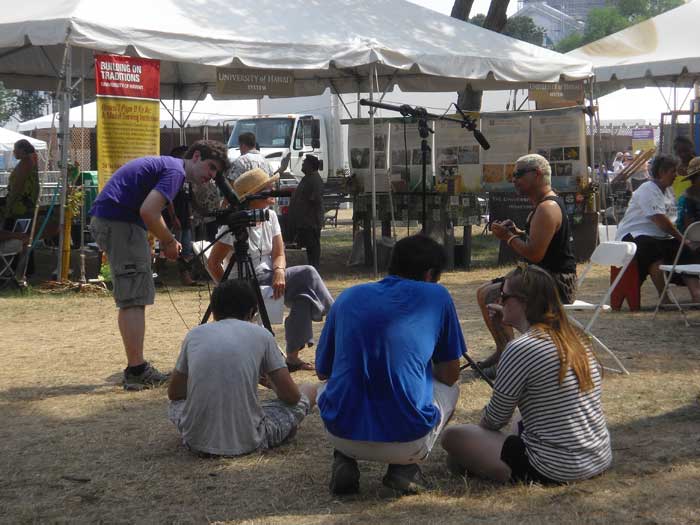Campus, Community, and Language: The Hawaiian Experience

Surrounded by the UNUKUPUKUPU hula halau at the Justin Morrill Performing Arts Center stage of the Campus and Community: Public and Land-grant Universities and the USDA at 150 program, I was once again struck by the centrality of the native Hawaiian language to the daily life and transmission of traditional culture to the Hawaiian people.
One of the notable outcomes of the inclusion of the University of Hawai‘i as a featured university in the Campus and Community program has been the deeper understanding that the public has gained in discovering that UH is emerging as the leading indigenous language university in the United States.
Embracing Hawaiian Knowledge
The transformation of the University of Hawai‘i into a university that fully embraces Hawaiian knowledge systems right along side the conventional Western or Western knowledge system is truly remarkable, and what is happening at UH really deserves greater attention. Among the organizational steps at UH has been the elevation of the study of Hawaiian knowledge by the establishment of the first College of Hawaiian Knowledge at the University of Hawai‘i-Manoa.

This college–along with the many other UH campuses that have departments and programs with a focus on Hawaiian history, culture, and language—are now working more closely together on curricular and innovative community engagement strategies to foster a more holistic intermeshing of the Hawaiian knowledge system with the Western knowledge system. This is being realized by infusing Hawaiian knowledge in a broad array of traditional disciplines including health, law, sciences, social sciences, and the humanities.
At the very core of all of the transformation has been a re-commitment to the preservation and revitalization of the Native Hawaiian language. In fact, some senior level courses are now also being taught in Hawaiian.
Festival Convergences
Festivals often provide revealing moments when the understanding of the vitality of expressive culture truly comes alive. At this year’s Festival, it became ever more apparent that for Hawaiian knowledge to flourish, the Hawaiian language has to be more broadly spoken and shared. Festivals often reveal surprising convergences and moments of deep insight.

What has emerged for me is the realization that building on the Campus and Community program–the forthcoming 2013 Smithsonian Folklife Festival program, One World, Many Voices: Endangered Languages and Cultural Heritage, will provide a powerful context for understanding how the Native Hawaiian language serves to communicate ideas, values, memories, history, culture, and knowledge from generation to generation. The Hawaiian language experience is an ideal case study for understanding how an endangered language can be rekindled both on the local level as well as via more structured learning settings such as immersion schools, colleges, and universities.
I am looking forward already to experiencing the 2013 Festival program on endangered languages as it calls attention to the urgent issue of global language loss and the successful stories of language revitalization and how this sustains cultural identity and heritage in communities around the globe.
C. Kurt Dewhurst, Ph.D., is the co-curator of the Campus and Community program. He serves as the Director of Arts and Cultural Initiatives and Senior Fellow, University Outreach & Engagement; Curator of Folklife and Cultural Heritage at the Michigan State University Museum and Professor of English at Michigan State University.

